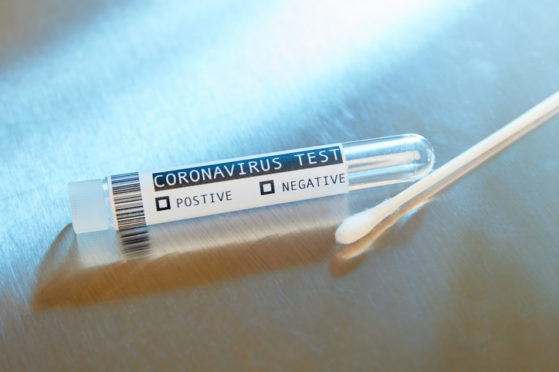It’s still early in Connecticut’s flu season, but across the state and nationally reported cases are on the rise. Dr. Virginia Bieluch, Chief of Infectious Diseases at The Hospital of Central Connecticut, says it’s not too late to get your flu shot.
The state Department of Public Health’s reporting is lagging behind that of the Centers for Disease Control, which for the week ending Dec. 4 is seeing a rise in cases across the country. Flu activity typically peaks between December and February.
“The number of influenza viruses detected by clinical and public health labs has increased in recent weeks,” the CDC report states. “Most influenza infections have occurred among children and young adults ages 5-24 years; however, the proportion of infections occurring among adults aged 25 years and older has increased in recent weeks.”
Dr. Bieluch said Connecticut’s data is mirroring what is happening nationally. The state health department provides information only through November 27. “Outpatient Influenza-like illness activity was higher than the level observed the previous week,” the state summary notes. So far, 147 positive influenza tests have been reported to DPH through Nov. 27.
“We anticipate it will continue to increase over the coming weeks,” Dr. Bieluch said.
Dr. Bieluch said people can receive their flu shot at the same time they get a COVID vaccine or booster. She urged anyone who remains unvaccinated against either or both viruses get those shots.
“The most important defense we have against influenza and its complications is the annual vaccine. The vaccine works to decrease both infections as well as severity of infections.”
Flu and COVID symptoms overlap. Testing is needed to tell what the illness is and to confirm a diagnosis. People can be infected with both flu and the virus that causes COVID-19 at the same time and have symptoms of both influenza and COVID-19.
Here are common flu and COVID-19 symptoms, according to the CDC:
- Fever or feeling feverish/having chills.
- Cough.
- Shortness of breath or difficulty breathing.
- Fatigue (tiredness).
- Sore throat.
- Runny or stuffy nose.
- Muscle pain or body aches.
- Headache.
- Vomiting and diarrhea.
- Change in or loss of taste or smell, although this is more frequent with COVID-19.
If it’s the flu, you’re contagious for about one day before the first symptoms appear. If it’s COVID-19, you can spread the disease for at least 10 days after the first sign of symptoms. If you have no symptoms, you can still spread the virus for at least 10 days after testing positive.
As the holidays approach, guaranteeing more indoor time with friends and family, Dr. Bieluch urged people to get vaccinated, wear masks, and wash their hands frequently.



